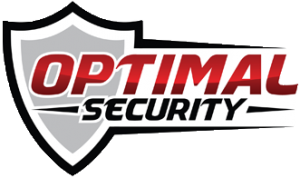One of the most prevalent conflict and ethical dilemmas HR individuals and security staff may find between themselves is hiring or firing specific individuals. The two departments may have a conflict about the person's personality work ethic, and most importantly, a valuable resource may be deemed a security risk simply because of personal bias from the security staff. On the other hand, the HR department may not screen individuals properly out of spite for the security staff and deliberately forward individuals they know won't stand up to their role(s).
Other key areas where the two departments may dispute or face ethical dilemmas include:
• During restructuring and layoffs
• Recommendations for appraisals of specific individuals
• The access a particular individual should be given to sensitive information
• Privacy of the staff. While the HR department may suggest that the security staff uphold employees' privacy, the security staff may need to closely monitor individuals.
• There may be a delineation of duties as the security regulations get more challenging and HR constantly works to ease employees' work balance.
• HR training for employees may sometimes work against what security training teaches them, leading to conflict.
What preventative measures can reduce ethical dilemmas between the two departments?
There is a very definitive link between security management and human resource functions, and with remote work, this link has only strengthened further. The best way to ensure that the conflicts and ethical dilemmas faced by the two departments are dealt with properly is via streamlined communication with each other and, more importantly, with the upper management.
A decision-making authority figure should always be available to department employees and the heads. This individual should have the authority to make final decisions on matters that impact HR and security values and should have the personal skills so required not just to attract, train, retain and motivate new staffbut also to make sure the current team is able to work towards common long-term goals and objectives.
The authority figure should oversee operations of human resource planning and the overall organizational security and highlight any issues that may lead to conflicts. It is essential that the authority figure is also made aware of the goings of the workforce by a third party, i.e., neither by the HR staff nor the security staff, to get a clear picture of what is going on.
One of the most significant issues that the security staff may have to face because of these conflicts and ethical dilemmas from the HR staff is the lack of hiring the right resource. New employees may either be over-or underpaid, leading to inefficiencies or disgruntled employees, respectively.
HR staff is usually closer to employees than the security staff, which may further make the duties of security guards hard (as employees fail to cooperate due to bias). The persona of security guards as 'walls' against doing something wrong helps them maintain internal security.
Regular training and bonding sessions can also help both departments solve any issues before they arise. Department heads should actively communicate to ensure that they are on good terms. Human resource planning plays a vital role in ensuring organizational security, particularly against internal threats, just like security plans do for better human resource management. Via proper planning and conflict resolution techniques, the upper management can ensure that these conflicts do not affect the day-to-day or the long-term goal of the organization.
